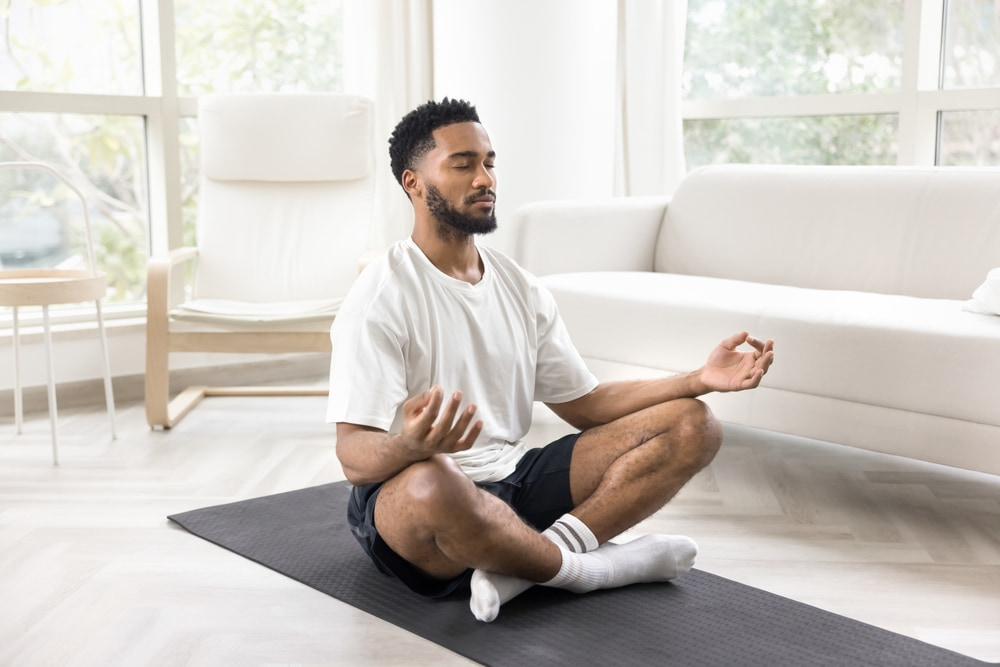Success stories of mental wellness through fitness


Stress, worry, anxiety, and depression are an integral part of our lives. In busy life, these affect us in many ways. Because of these reasons, we are mentally ill. We take various steps to avoid depression. However, to achieve success in mental health, you have to maintain fitness. Physical exercise not only increases our stamina but also helps us to stay fit. Fitness is the key to success.
In this article, we will explore the success stories of individuals who have found physical work to be a key factor in their mental health. Taking care of the body is taking care of the mind. By maintaining fitness, we can stay physically fit.
“Exercise isn’t my only defense against my depression but it’s a really big part.”
Scientific explanation
Release of hormones
Endorphins are released during exercise and serve as a type of painkiller hormone. This hormone creates a feeling of joy and satisfaction in our brains. It helps to reduce stress and pain.
Serotonin: It is often called the happy hormone. Serotonin controls mood, sleep, and appetite. Regular exercise helps increase serotonin levels, which plays an effective role in reducing depression and anxiety.
Dopamine: This is an integral part of our brain’s reward system. Exercise increases dopamine levels, which creates feelings of joy and motivation. It encourages us to set new goals and achieve them.
Reduces stress hormones
Regular exercise reduces the stress hormones cortisol and adrenaline in our body. These hormones not only reduce stress but also help us cope with future stress. Exercise acts as a healthy ‘escape mechanism’, which gives our mind a temporary relief from daily worries.
Increases brain function
Exercise increases blood flow to the brain, which helps supply oxygen and nutrients to neurons. This improves memory, attention, and overall cognitive function. Exercise creates new nerve cells in the brain and reforms old connections.
Improves sleep quality
Physical exercise increases body temperature, and this temperature decreases during sleep. And this results in sound sleep. A good night’s sleep is essential for mental health, as it refreshes the mind and helps reduce stress.
Different types of fitness routines
A 2024 network meta-analysis with over 14,000 participants found that physical activity (walking, yoga, resistance training, etc.) significantly reduces depressive symptoms—comparable to therapy and medication.
Cardiovascular exercise


It is essential for heart and lung health. Cardio exercise keeps the mind fresh and reduces stress.
Running is a good cardiovascular exercise that helps keep the body fresh. Running every day releases endorphin hormones from the body, which helps maintain overall health.
Walking: This is an easy cardiovascular exercise that helps boost your mood. Walking for 20-30 minutes every day can keep you physically fit as well as relieve mental fatigue.
Cycling is a beneficial exercise for reducing stress and anxiety. Cycling for a short time, 4-5 days a week, can keep you fit. Especially cycling near nature improves your mood.
Swimming: This is a complete physical exercise. During swimming, blood circulation in the brain increases, which improves brain function.
Strength training
This type of exercise is very beneficial for the body. There are various types of exercises in strength training. One advantage of this type of exercise is that it does not depend on equipment. This type of exercise can be done anywhere; it is very effective in reducing stress. Push-ups, squats, and planks are beneficial exercises if you can perform them regularly.
Flexibility and balance


Yoga: It combines physical postures, breathing exercises, and meditation. Yoga calms the mind, reduces stress, and increases the flexibility of the body.
Tai chi: It is a practice of slow and controlled movements. Tai chi improves mental calmness, concentration, and balance. It is especially beneficial for older people.
Mind-body connection
Meditation and breathing exercises: Although it is not a direct physical exercise, it is an integral part of a fitness routine. Regular meditation and deep breathing exercises calm the mind, reduce stress hormones, and bring mental stability.
Tips for getting started
Start small: Don’t try to do too much at once; start slowly. Begin by walking for 10-15 minutes daily, followed by exercising 2-3 days a week.
Choose exercises according to your preferences: There is no point in doing heavy exercises. Begin with the exercises you enjoy the most.
Maintain regularity: Do a little bit of regularity every day. If you miss one day in a 5-day week, there is nothing to be disappointed about.
Set realistic goals: It is not about losing 20 kg in the first month. If you try to lose 20 kg in a month, you may face problems. Set goals that you can keep. For example, I will walk for 10 minutes every day this week or do one push-up every day. Small successes will increase your confidence.
Reward yourself: When you complete a small goal, reward yourself. This will increase your self-confidence and create more interest in work.
Proper diet


It is not enough to keep the body fit by exercising only; eating nutritious food is also essential. If you do not follow a proper diet, you will not be able to stay physically fit. You have to calculate it while eating food. You need to eliminate processed, fast food, and foods high in excess sugar. Omega-3 fatty acids are essential for brain health and neuron function. Eating at the right time is crucial, as it keeps the body stable and helps reduce stress.
Personal experiences and success stories
1. Riya’s story: Turning around from depression
Riya, a university student, was suffering from the pressure of her studies and worries about her future. At one point, this mental stress increased so much that she became depressed. She had trouble sleeping and lost interest in everything. A friend suggested that she go for a walk in the park every afternoon. At first, Riya was not at all convinced, but at the request of her friend, she agreed.
For the first few days, Riya walked reluctantly. Then gradually she started running for 15 minutes every day. Riya was surprised to notice that her mind felt much lighter after exercising. She also noticed that her sleep began to improve, and her concentration in studies increased. Eventually, Riya recovered completely from her mental depression. According to Riya, “I can stay away from all worries while exercising. It has given me new energy.”
2. Sagar’s story: Dealing with work stress
Sagar is a busy corporate employee. His job is very stressful, and he has to work for long hours every day. Due to this stress, he became irritable, and he often suffered from headaches. A colleague advised him to join a gym. Initially, Sagar did not feel the need for it, but after seeing the deterioration in his physical and mental condition, he started going to the gym.
Sagar used to go to the gym every day after work and exercise for about an hour. Initially, he did not notice much change due to physical fatigue. But after a month, he realized that his mental stress had significantly reduced after exercising in the gym. After exercising, he felt very refreshed and lighter. His focus during work increases, and his mood improves. According to Sagar, “After sweating it out at the gym, I feel like all the stress has gone out of my body. It is now my favorite part of the day.”
3. Mita’s story: Regaining confidence
Mita often suffered from low self-esteem due to being overweight. As a result, her self-confidence decreased, and she was afraid to go to social events. To alleviate this stress, she decided to start doing Yoga and meditation. Mita practiced Yoga and meditation for an hour every morning.
Through regular Yoga and meditation, Mita not only lost weight, but her mental state also improved significantly. Each yoga pose helps her calm her mind, and meditation teaches her to feel her inner strength. Within a few months, Mita noticed the change. She is now very confident and cheerful. According to Mita, “Yoga has not only made me fit on the outside, but also made me strong on the inside. It has given me back my confidence.”
Key takeway from Success stories of mental wellness through fitness
To be stress-free, you have to stay fit. And there is no shortcut to staying fit. You have to work hard to succeed. There will be stress at work, and you have to deal with it. Every small step you take towards physical fitness is a significant investment in your mental well-being.
Start your journey today-to a healthy body and a peaceful mind. To survive in the race of life, you need mental strength as well as physical strength.









